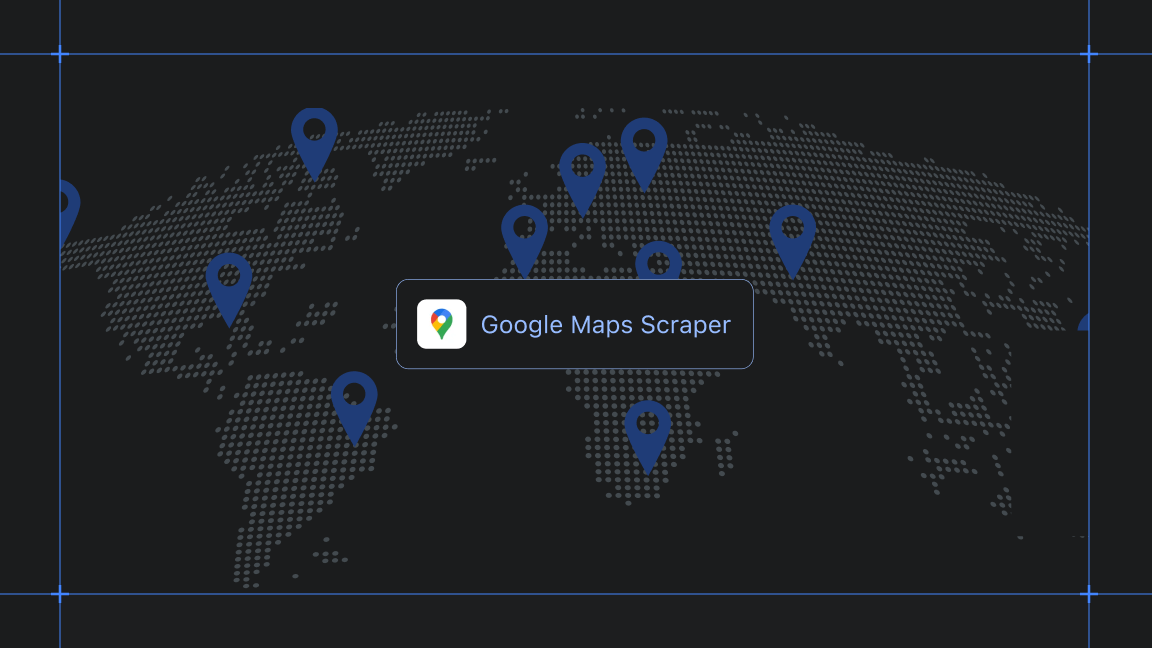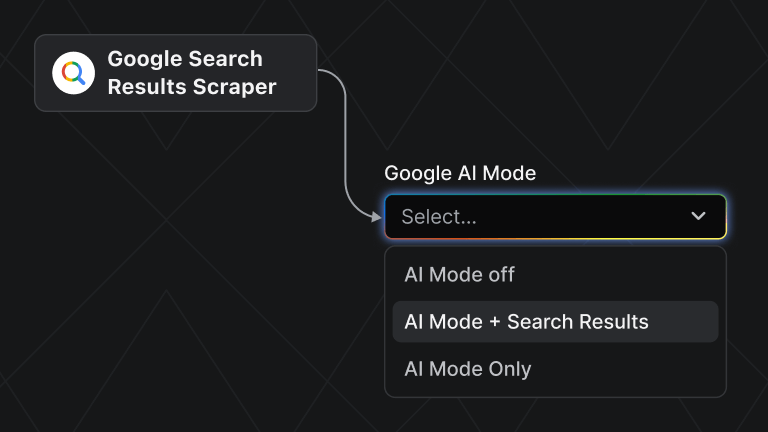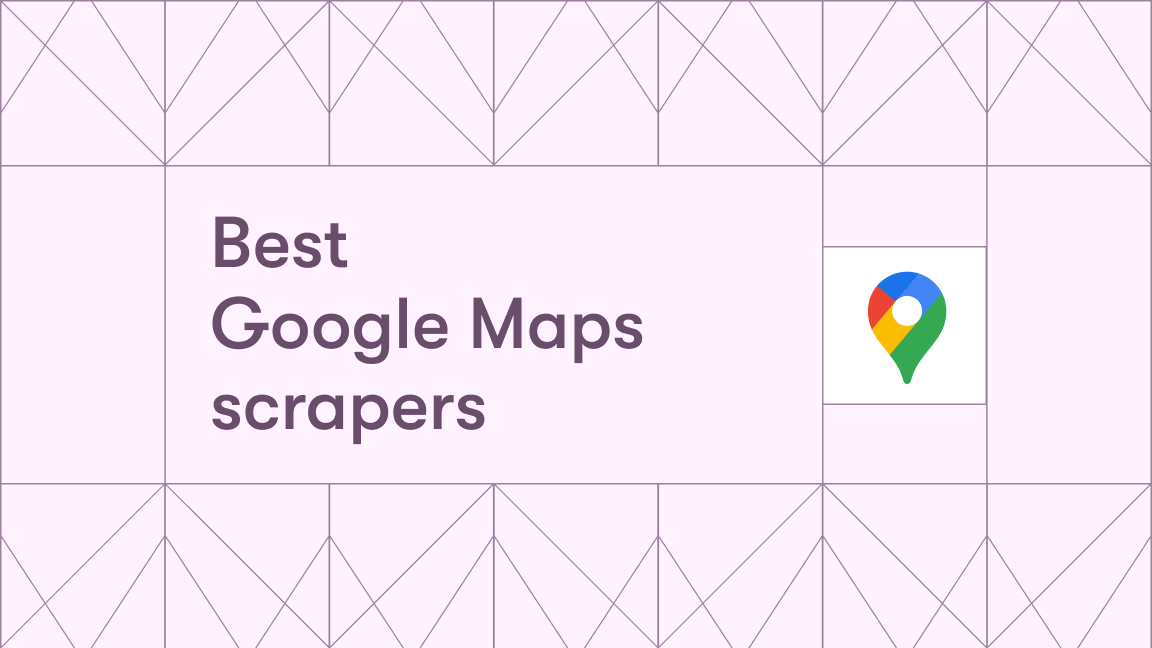APIs are the open doors of the web. Their main function is to bridge different web applications and make the exchange of data possible. When crafted with care, an API allows two distinct applications, even those built with different tech stacks, to interact easily without any need for makeshift solutions.
Despite the essential role of APIs, not every website makes its APIs publicly accessible. Google, unfortunately, doesn’t provide a direct API for scraping search results, which is why users typically turn to third-party SERP APIs or web scraping solutions to access Google search data.
This article will examine the available third-party SERP API alternatives and explain the limitations of Google's official search APIs.
Top Google SERP APIs in 2026
1. Apify Google SERP Scraper
This Google SERP bot will get your search request, conduct the search on google.com, and extract raw data from the result pages. You can specify language preferences (e.g., English or Spanish), result geolocation (e.g., US or Mexico), the number of pages to scrape (e.g., the first 10), and various other parameters.
With Apify’s Free plan, you get $5 in usage credits every month, allowing you to scrape over 1,000 pages for free.
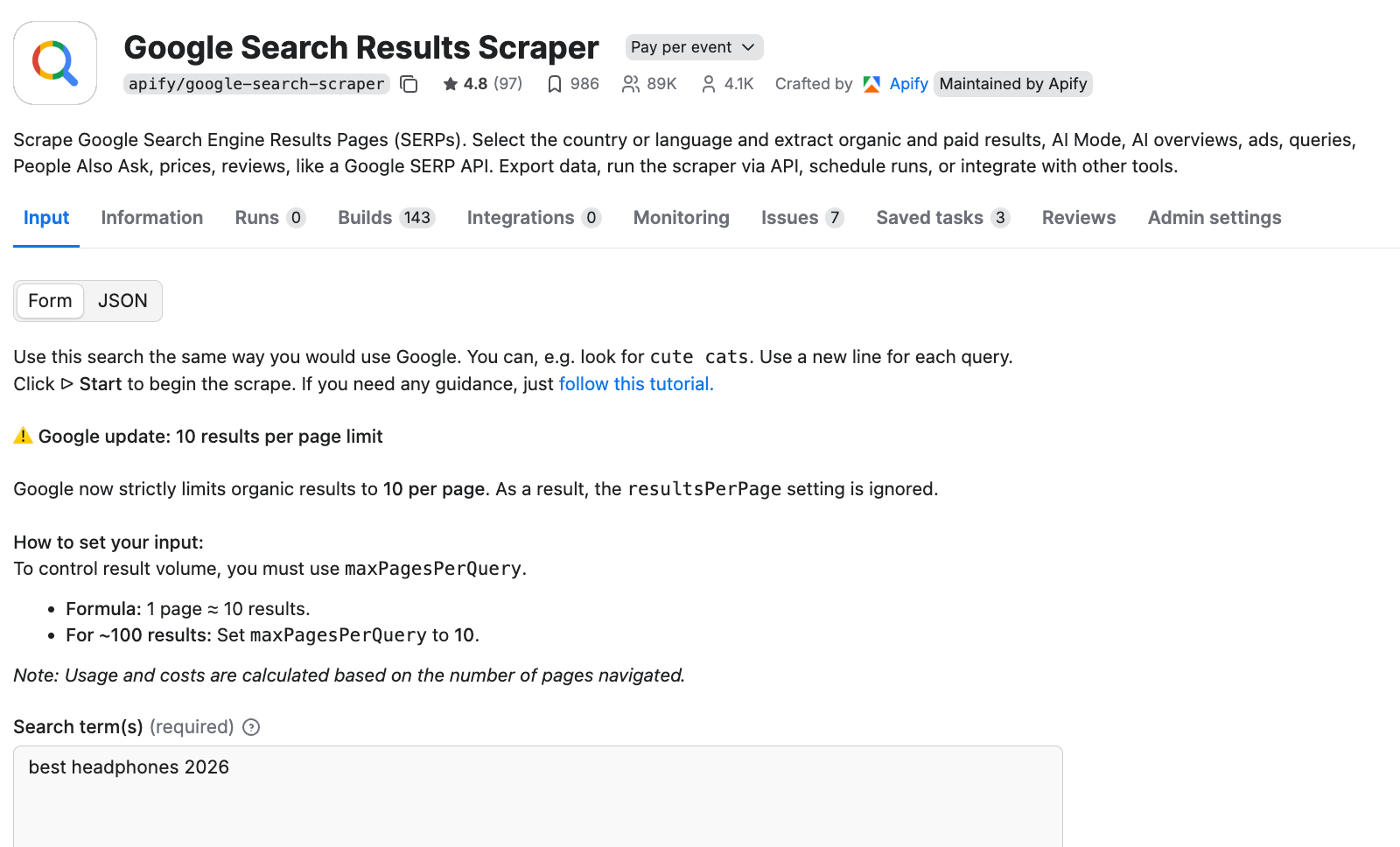
2. SerpAPI SERP API
This Google SERP API offers straightforward web scraping, including regular search results in an easy-to-use JSON format. It ensures accurate searches with secure settings, bypasses CAPTCHAs smoothly, and promises fast access without waiting in line. You can start for free with 250 searches a month. Pricing begins at $75/month for up to 5,000 searches, but if you need what they call "the Legal US Shield" for added peace of mind, you must choose either the Production or Big Data pricing plan.
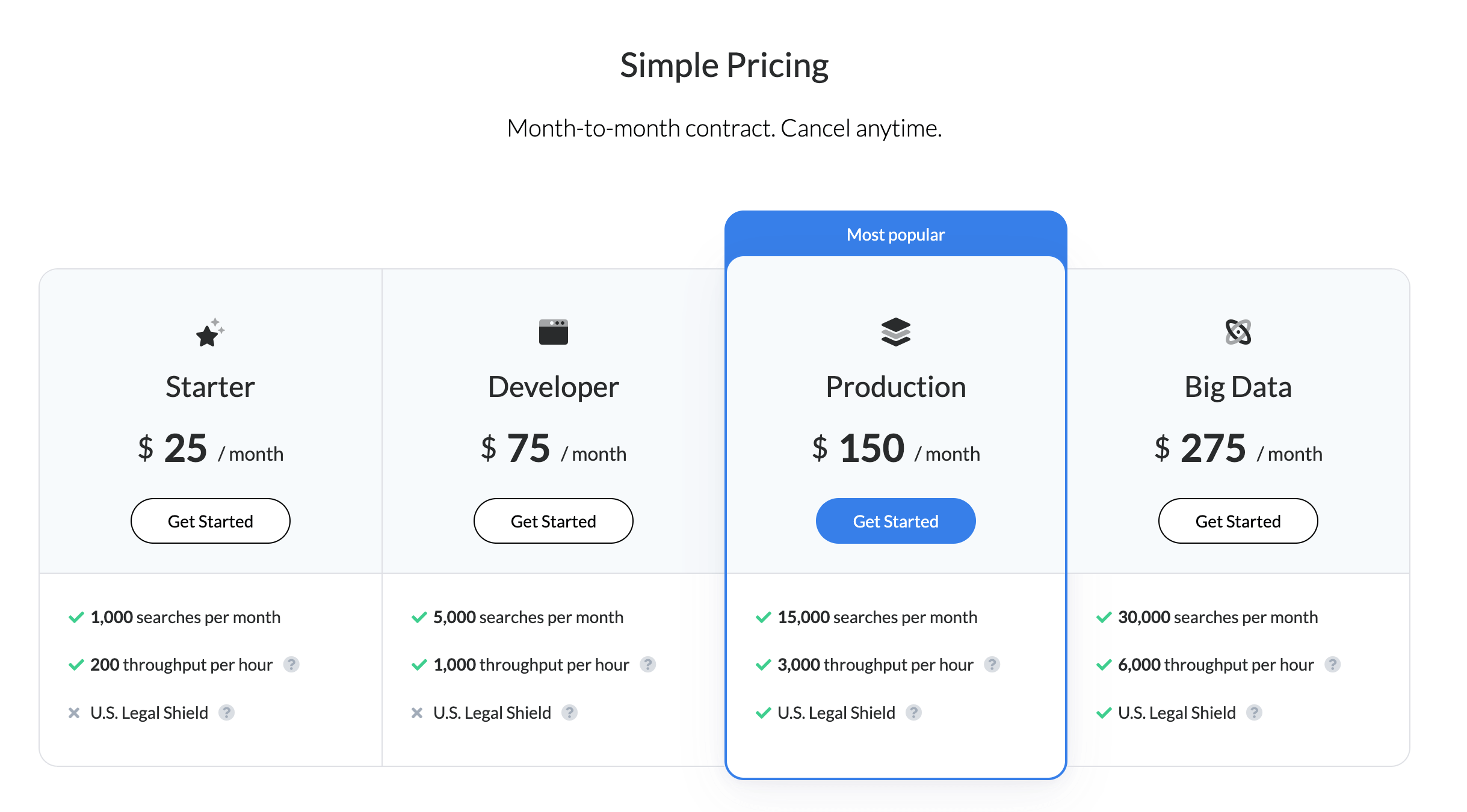
3. Serper Google Search API
This Google SERP scraping API merges traditional Google Search scraping with specialized searches for images, videos, locations, and news. This SERP API offers an efficient solution, especially for collecting search results data from Google. Pricing ranges from $50 to $3,750, covering 50K to 12.5M queries, with the flexibility to tailor query location and language. Speed is the platform's highlight, though the JSON format is the sole option for data export.
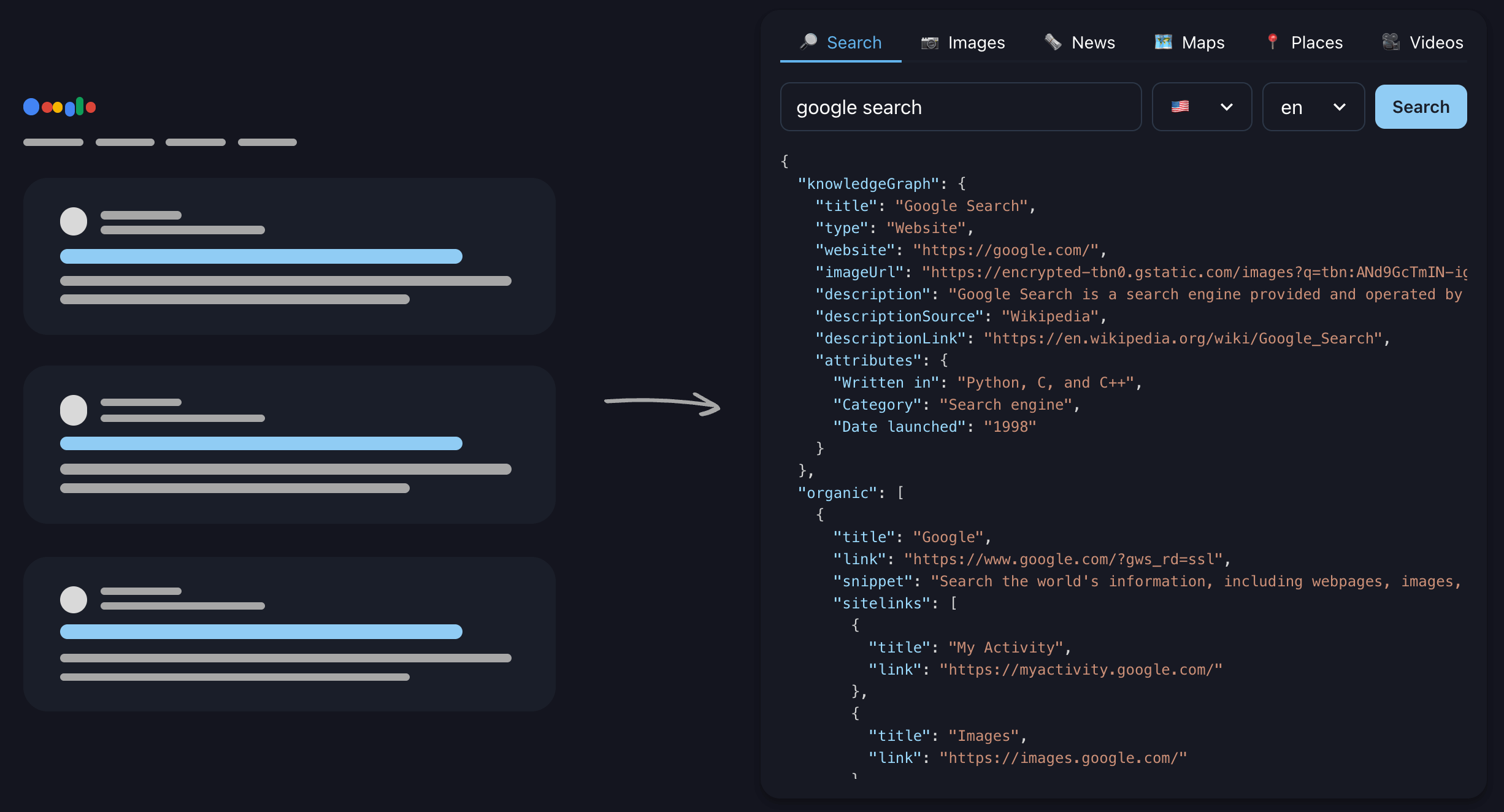
4. ZenSERP complete Google Search API
With this Google SERP API, you can access a wide range of SERP data including organic and paid results, images, videos, news, local results, knowledge graphs, related questions, answer boxes, and maps results. Pricing plans start from a free option with 50 searches to a Very Large plan at $499.99/month for 120,000 searches, catering to various needs from basic to large SERP projects.
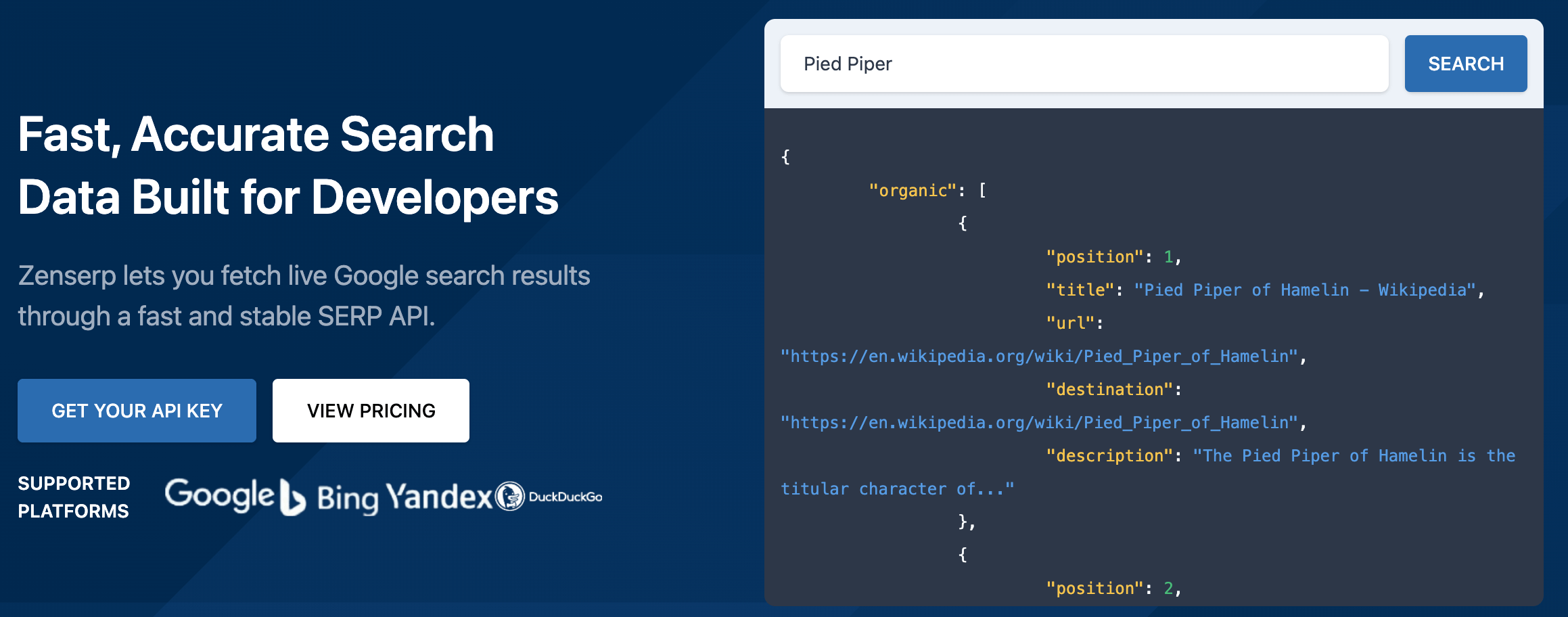
5. Scrapingdog Google SERP API
Our last Google SERP pick has documentation in multiple languages, from curl to Java, and you can test the API for free with 1000 credits. Scrapingdog offers four pricing plans, starting from $40 monthly for 40,000 credits, and each successful request will cost you 5 API credits.
Scrapingdog’s development team continuously monitors changes in Google’s SERP layout and manages updates accordingly. According to the website, the average response time is 1.8 seconds, making it a fast and easy choice for Google search results scraping.
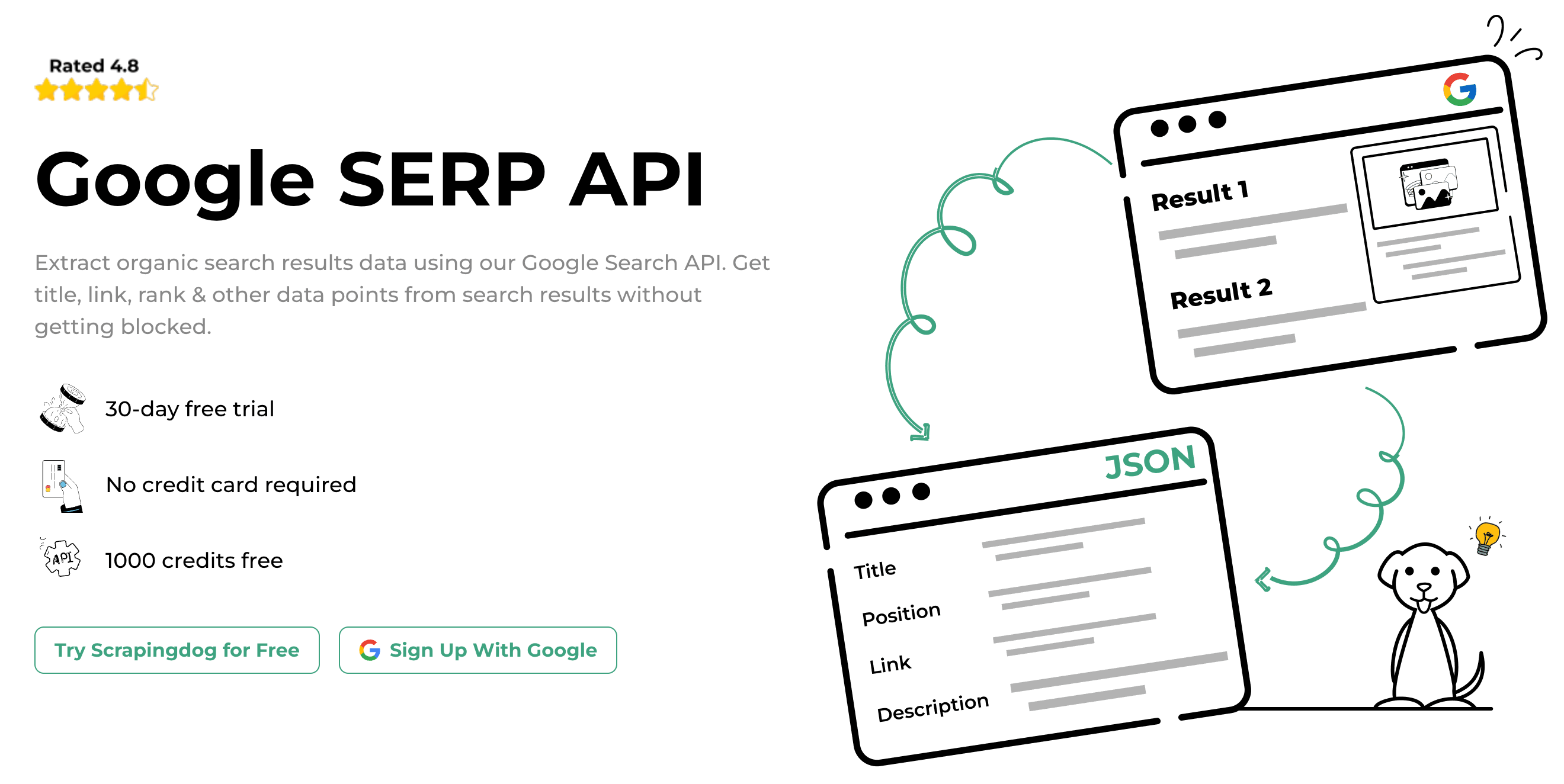
An alternative to public APIs: web scraping tools
Creating your own Google SERP API is complex and requires API keys and technical setups, but there's a simpler way to monitor your page's performance on Google search results: web scraping tools. Web scrapers came about as simpler alternatives to public APIs. Google SERP scrapers essentially allow you to gather data about your website's search ranking without deep programming knowledge or skills (unless you want to apply them).
These tools are a straightforward solution for tracking how your page ranks in Google search results. When teamed up with SERP proxies, web scrapers can bypass the limitations of official APIs like query limits. Web scrapers are your best allies if all you need is to see where your page stands in search results.
FAQ
Is there a direct Google SERP API?
Currently, no. At first glance, Google has an "army" of public APIs for its various services, typically structured around JSON and RESTful requests. These APIs are openly accessible via Google's API GitHub repository. But you won't find a SERP API among them. Custom Search API is the closest to an official solution, but it serves a different purpose. It won't crawl Google and return a comprehensive list of SERP results in JSON format, as you might expect. Instead, it can help you to create a mini search engine for your site by applying the logic of Google SERPs.
Moreover, this alternative, often confused with Google SERP API, introduces two significant restrictions: a limit on search queries and the scope of searchable websites. It allows a limited number of searches daily (10K), with a fee of $5 per 1K queries for broader searches through the official Google API (see SERP API pricing page).
Are Google APIs free?
Google offers numerous APIs, all freely accessible but with certain limitations. For instance, the Google Custom Search API allows up to 100 free search queries daily. Exceeding this free quota or the 10,000 daily query cap means additional costs. The only way to surpass that 10K daily limit is if your searches don't exceed more than 10 websites.
How to scrape Google SERP pages via an API?
Although Google provides a form of Search API, using it to query the entire web and receive a machine-readable document is not feasible, making an "official Google SERP API" in the conventional sense non-existent. Nevertheless, the developer community has identified this gap and developed alternative solutions. These alternatives, essentially scrapers like Google SERP Scraper, are the sole viable method for extracting data from Google through an API.
Do I need proxies to scrape Google SERPs?
Yes. To effectively scrape Google SERPs without facing IP bans or rate limits, using SERP proxies is highly recommended. These proxies are specially designed to facilitate reliable and efficient Google SERP scraping, ensuring your operations run smoothly and remain undetected. With Google SERP proxies, you can access accurate, location-specific search results data with minimal risk.
What is SERP data good for?
SERP data (or Search Engine Results Pages data) has many use cases:
- SEO improvement. By studying SERP data, website owners can understand how well their site ranks on search engines and make improvements to appear higher in search results, attracting more visitors.
- Market research. Businesses use SERP data to learn about market trends, see what competitors are up to, and find out what customers are searching for. This helps them make better products and marketing strategies.
- Advertising and marketing. Advertisers use SERP data to see where their ads might show up and how they can make them more effective. By understanding what people are searching for, they can create ads that are more likely to be engaged with.
- Reputation management. Similar to the case above, brands monitor SERP data to keep track of what's being said about them online. This way, they can quickly respond to any negative feedback or misinformation.
- Product development. Companies can use SERP data to find gaps in the market or to understand customer needs better.
Note: This evaluation is based on our understanding of information available to us as of February 2026. Readers should conduct their own research for detailed comparisons. Product names, logos, and brands are used for identification only and remain the property of their respective owners. Their use does not imply affiliation or endorsement.



